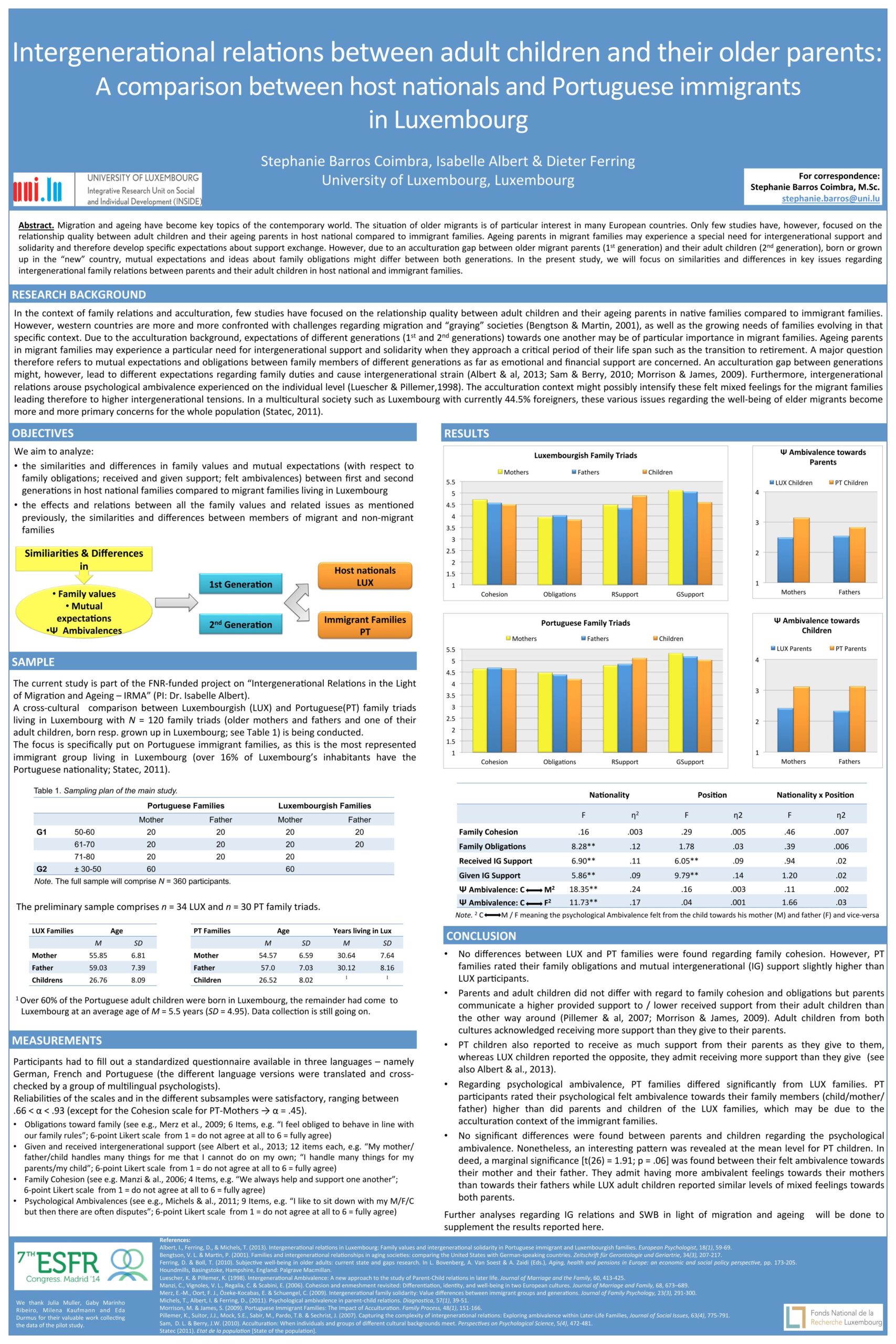Migration and ageing have become key topics of the contemporary world. In the next years, many western countries will be confronted with specific challenges of an ageing society. Among these, the situation of older migrants is of particular interest in many European countries. Only few studies have, however, focused the relationship quality between adult children and their ageing parents in host national compared to immigrant families. Within this context, expectations of different generations towards one another may be of specific importance. As ageing parents approach a critical period of their life span, they may in general more likely experience a need for intergenerational support and solidarity and develop specific expectations about support exchange. These expectations may be challenged when families migrate from a culture of interdependence to a culture of independence, since cultural contact might lead to core changes in value orientations. As these changes are often more pronounced in the second generation than in the first, a generation gap between ageing parents and their adult children might result out of this process. A major question in this context refers to mutual expectations and obligations between family members of different generations as far as emotional and financial support are concerned. Adult children from immigrant families might, for instance, be subject to the experience of ambivalent or conflictual feelings regarding the desire to become independent from their parents; at the same time, they may feel the urge to conform to parental expectations or to support their parents in accordance to the values of their parents’ culture of origin. However, older parents may also undergo changes in their perception of intergenerational support and lower their expectations in the process of acculturation.
In the present study, a cross-cultural comparison between Luxemburgish and Portuguese triads of adult children and their older parents living in Luxembourg (N = 120) will be realized. We will focus on different key issues regarding intergenerational family relations between first and second generations of host nationals and immigrants. One of the main issues will be to examine interdependent and independent self-construals comparing both cultural groups and both generations, presuming that there might be an intergenerational or an acculturation gap. Another research question concerns the potential consequences of divergent expectations about support and solidarity between family members of different generations, such as ambivalent or conflictual feelings. Finally, we will analyse in how far changes in the ideas about intergenerational relations might have affected and be affected by the life-long goal pursuit of older parents of both cultural groups.
Results will be discussed within the framework of an integrative model of intergenerational family relations in the light of migration and ageing, which will be presented as a heuristic to explain similarities and differences in adult child-parent relationships by comparing two culturally different groups.
Intergenerational relations between adult children and their older parents: A comparison between host nationals and Portuguese immigrants in Luxembourg
Proposition de citation
Barros Coimbra, S. & Albert, I. (2014). Intergenerational relations between adult children and their older parents: A comparison between host nationals and Portuguese immigrants in Luxembourg. 7th ESFR Congress, Madrid.


